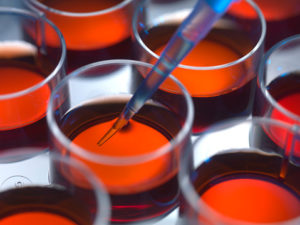Sickle cell disease and β-thalassaemia are caused by mutations in the β -globin gene. Previous studies have shown that transplants of normal β-globin genes into haematopoietic stem cells (HSC) may cure the disease; however, this process is considered inefficient. New advances recently published in Nature point towards an approach that may improve the efficiency of this intervention. Researchers were able to correct human HSCs that carry the mutation responsible for sickle cell disease in mice. Briefly, normal β-globin genes were delivered with an adeno-associated viral vector delivery system into purified human HSCs with the sickle cell gene, and the CRISPR/Cas-9 gene editing system was used to prompt homologous recombination of the normal gene into the target HSCs. New purifying techniques using fluorescence-activated cell sorting or magnetic bead enrichment allowed researchers to collect populations of cells with more than 85% of the normal β-globin gene integrations. These new advances in methodology may help lead to cures for hematological diseases.
Reference:

